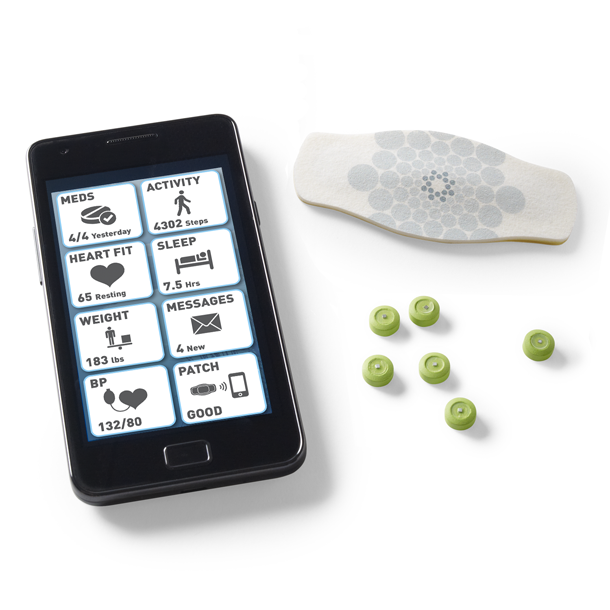FDA Approves First Electronic Pill

With the thousands of things that each of us has to do every day, it is no wonder that not everyone is taking medication like they should. Indeed, Eric Topol, the director of Scripps Translational Medicine in La Jolla, California, said that 50 percent of Americans take their medications on time, every time. And it is no surprise – short of hiring someone to follow us around and remind us to take that round of antibiotics, it often is hard to remember.
In response to that predicament, the Food and Drug Administration, as well as its counterpart in Europe, has approved the first electronic pill. The pill is implanted with a microchip that is about the size of a grain of sand that reacts with digestive materials. Once the pill processes the information, it sends a signal to a patch that the patient wears on his or her arm, which then sends a message to the patient's physician. After its work is done, the microchip is dissolved and passes through the digestive system like other foods.
While the technology may seem a bit Big Brother, it certainly is welcome in today's day and age. In fact, a report that emerged yesterday said that 1 in 5 middle-aged adults have more than one chronic condition, and half of seniors over the age of 65 have at least two. With increasing amounts of medications to take, it may be helpful to have a chip remind you to take your medication. And physicians assure us that they will not be hounding people to take their prescriptions; most say that they simply will use the information to monitor their patients.
The electronic chip is manufactured by Proteus Digital Health. Currently, the technology is only approved for use in placebos, but the manufacturers' obvious next step is usage in actual medications. Experts hope that digital medicine can improve to the point where injectable devices can wirelessly implant medication, or even supplant the need for MRIs, CAT scans and blood work.
Proteus admits the electronic pill may not be helpful for everyone. For people taking a short round of antibiotics for a brief bout of illness with recognizable, obvious symptoms, the pill will probably not be necessary. The electronic pill will be most advantageous to people with long or unceasing treatments, like tuberculosis or diabetes; or for the elderly, who may forget to take their medication. Regardless, its approval is a huge step forward for proponents of digital medicine.
Published by Medicaldaily.com



























